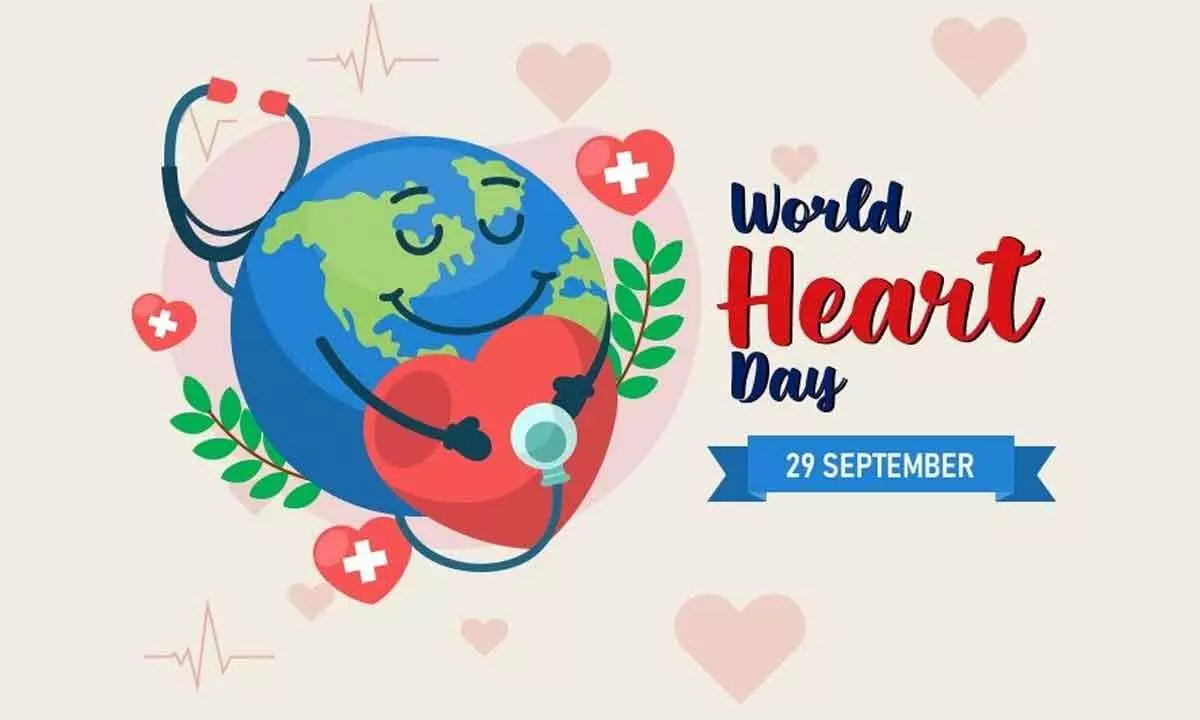Raise awareness about heart health

Gastronomy Tourism is a rapidly growing sector of Indian tourism industry which so far has remained limited, though the potential not only lies in its diverse geography and history but also in the diverse culinary heritage. India is bestowed with the gift of its own unique taste of local food in every city and state which can be a dedicated exploratory journey of a region or it can be combined with a regular vacation package to enhance the experience
The World Heart Day provides an opportunity for WHO and its Member States to join the global call to raise awareness about heart health and accelerate actions to prevent, detect and manage cardiovascular diseases.
The WHO South-East Asia Region is home to a quarter of the world’s population. The region is experiencing a very high burden of noncommunicable diseases (NCDs), and cardiovascular diseases (CVDs) are responsible for 3.9 million annual deaths, making up 30% of all deaths. Alarmingly, almost half (48%) of these CVD-related deaths occurred prematurely, affecting individuals aged 30 to 70 years and imposing significant socioeconomic burdens on families, communities, and countries.
Main causes to the burden of CVD include modifiable lifestyle factors such as tobacco use, alcohol consumption, unhealthy diets especially high salt intake, and lack of physical activity. Raised blood pressure and raised blood glucose levels are key drivers and they can be detected, diagnosed, and managed adequately in primary care. One in four adults in the region has raised blood pressure, while one in ten has diabetes, and less than 15% are on effective treatment coverage. Additionally, high levels of lipids in the blood and suboptimal management of acute cardiovascular events further worsen CVD mortality.
In response to this significant public health importance, NCDs has been identified as a Regional Flagship priority since 2014. In 2022, the region has adopted the ‘Implementation Roadmap for accelerating the prevention and control of NCD in South-East Asia 2022–2030.’ SEAHEARTS initiative of the South-East Asia Region is a platform that brings together tobacco control, salt reduction, elimination of industrially produced trans fats along with hypertension and diabetes coverage and control through primary health care. The SEAHEARTS (WHO HEARTS package adaptation to South-East Asia Region) initiative of the region, brings together measures to reduce risk factors (tobacco control, salt reduction, and trans-fatty acids) with improvements in hypertension and diabetes coverage and control in primary health care. SEAHEARTS resonates with the World Heart Day 2023 theme ‘Use Heart, Know Heart’ and offers countries a roadmap to scale up their current situations and align their actions within the broader NCD prevention and control efforts.
Tobacco use prevalence in the region is declining due to the implementation of WHO Framework Convention on Tobacco Control measures. Bangladesh, India, Sri Lanka, and Thailand have taken steps to eliminate trans-fatty acids from their national food supplies, potentially benefiting over 1.7 billion people.
Several countries in the region, including Bangladesh, Bhutan, India, Nepal, and Timor-Leste, have set national targets to enhance hypertension and diabetes management in primary health care by 2025, in line with the SEAHEARTS initiative of placing 100 million people with hypertension and or diabetes on protocol -based management by 2025. India’s target of reaching 75 million people with hypertension and diabetes under standard care by 2025 is the largest cover of NCDs for primary health care in the world.
Accelerating the control of CVDs is a priority and WHO South-East Asia Region is calling for action in four key areas:
First, countries need to place CVD high on their agenda and expand their efforts through commitment and leadership at both policy and programmatic levels. Second, continue implementing evidence-based tobacco control laws in line with the WHO Framework Convention on Tobacco Control and its MPOWER package across all countries.
Third, promote healthy diets with a specific focus on salt reduction and eliminating trans-fatty acids by implementing WHO SHAKE and WHO REPLACE technical packages.
Fourth, scale up programs and service delivery models that improve the detection, diagnosis, and management of hypertension and diabetes in primary health care with referral mechanisms. The goal should be to achieve full implementation of the WHO HEARTS technical package along with a seamless care continuum for CVD patients, with an emphasis on reducing complications and managing acute emergencies with proper care coordination. Countries need to demonstrate impact through utilizing digital solutions for better coverage and control rates.
These actions are critical not only for public health but also for achieving Sustainable Development Goal (SDG) targets related to NCDs and Universal Health Coverage. With only seven years left until the 2030 SDG target deadline, on this World Heart Day, it’s a call for all of us to take action and empower ourselves to address CVD risk factors and improve disease outcomes.
Each of us can make a meaningful difference within our capacity and can collectively contribute towards SEAHEARTS that holds the potential to save lives and improve the well-being of millions. WHO remains committed to supporting countries in their endeavor to reduce CVD burden in the Region and improve public health outcomes. Let us use SEAHARTS for our heart health!
(Writer is WHO Regional Director for South-East Asia)








